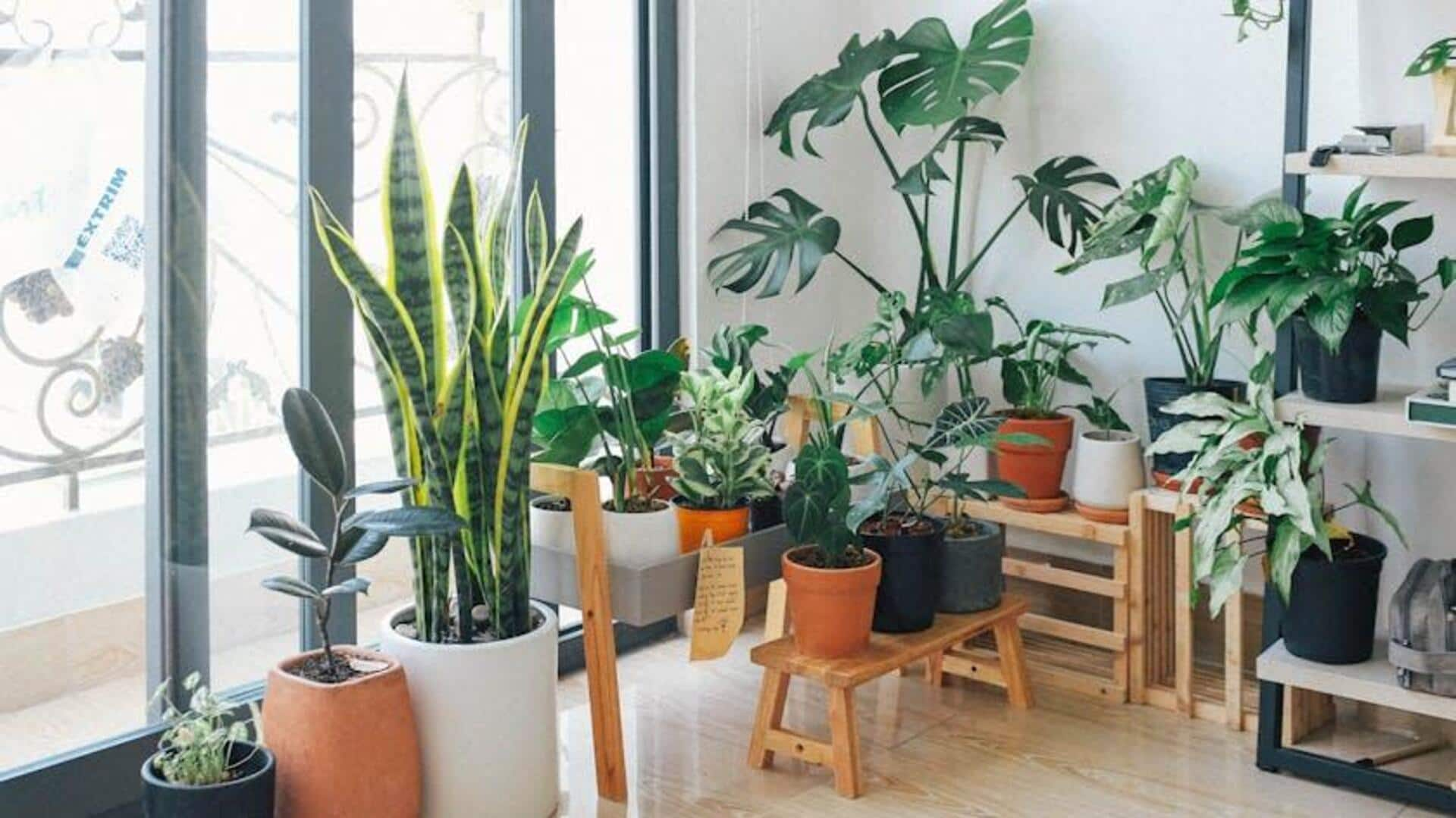
How to make natural hydrogels for houseplants
What's the story
Natural hydrogels are an interesting way of keeping houseplants hydrated. These water-retaining materials can be prepared using basic, environment-friendly materials. They assist in maintaining soil moisture, minimizing how often you need to water plants, and giving them a continuous supply of water. Here's how you can prepare natural hydrogels at home and their advantages for houseplants.
Aloe vera
Using aloe vera gel
Aloe vera gel is a natural hydrogel that can be used to keep plants hydrated. Simply extract the gel from aloe vera leaves and mix it with water to create a thick solution. This mixture can then be added to the soil around your plants. Aloe vera gel not only retains moisture but also provides nutrients that promote plant health.
Cornstarch mix
Cornstarch-based hydrogel
Cornstarch is yet another ingredient to prepare a hydrogel. Mix cornstarch with water in equal parts and heat until it forms a thick paste. Once cooled, this paste can be mixed into the soil or placed near plant roots. The cornstarch-based hydrogel absorbs water and releases it slowly, helping maintain consistent moisture levels.
Gelatin solution
Gelatin as a moisture retainer
Gelatin makes an excellent natural hydrogel alternative for plants. Simply dissolve gelatin powder in hot water as per package instructions and let it cool till it becomes gel-like. Mix this gelatin into the potting mix or put small chunks next to the plant roots to ensure gradual moisture release over time.
Hydrogel advantages
Benefits of natural hydrogels
Natural hydrogels can be quite beneficial for taking care of houseplants. They decrease the frequency of watering by retaining moisture in the soil. This can especially come in handy during dry seasons or if you tend to be away from home often. Furthermore, these hydrogels are biodegradable and eco-friendly compared to synthetic alternatives.
Usage tips
Tips for effective use of hydrogels
To make the most of natural hydrogels, make sure they are evenly mixed into the potting mix or placed strategically close to root zones. They will come in direct contact with plant roots as required over time without harming them, thanks to their organic nature. These are safe even if consumed accidentally by pets around them too.